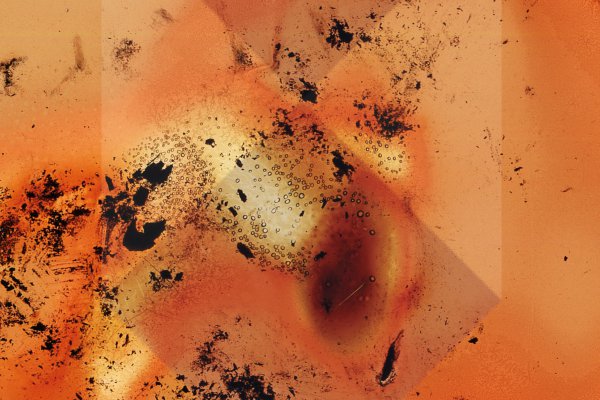It is easy to get the impression that our current age represents the accumulation of all of the dystopias of the last 50 years. Everything that Orwell & co. described has come true, or even been surpassed in its negativity. Feelings of fear and powerlessness are deliberately stirred up, political and economic authorities exploit terror, the refugee crisis and resulting insecurities in order to push through closer surveillance, increased weapon production, etc. and so boost business and profits. Democracies are increasingly being transformed into totalitarian states, while any criticism seems to have been silenced by the weight of economic pressure.
Critics such as George Orwell could already as early as 1940 be heard warning loudly and clearly of developments such as totalitarianism and “emotional nationalism” and had recognised and named “the tendency to disbelieve in the existence of objective truth because all the facts have to fit in with [one’s own world view].” By 1944 Orwell had already described post-war politics as an era that would be willing “to adopt the theory that the end justifies the means. Everywhere the world movement seems to be in the direction of centralised economies which can be made to ‘work’ in an economic sense but which are not democratically organised and which tend to establish a caste system.” (…) “You ask whether totalitarianism, leader-worship etc. are really on the up-grade”, he wrote in a letter. (…) “If one simply proclaims that all is for the best and doesn’t point to the sinister symptoms, one is merely helping to bring totalitarianism nearer.” Authoritarian state, authoritarian and exclusionary thinking and behaviour, constraint without alternatives – these are just some of the keywords that testify to totalitarianism and the disintegration of the private sphere.
The works Babel (maschen - Korinna Lindinger and Julia Rosenberger) and Artikel Twelve (k²- Korinna Lindinger and Karla Spiluttini) thematise these aspects and focus on oppressive effects and ambivalence of structures. “If our freedom of expression is fully determined by the state, that is, if we are only able to do and say, what is already deemed acceptable by the state, then our freedom of expression is no more than an instrument of state power.” specified Judith Butler in a 2015 talk and calls for the development of “forms of dissent, even forms of revolution”; with reference to the feminist art theorist Rosi Braidotti she states: “We must take on a larger sense of the possible”. That is, the disruption and destruction of entrenched systems with which people exist in ambivalence since they both support and suppress in equal measure. This category of disruption/destruction includes Adelheid (maschen - Korinna Lindinger and Julia Rosenberger) and One Step Revolution (Mz* Baltazar’s Laboratory - Stefanie Wuschitz). Freedom of expression, the destruction of the corset of gender roles, the simplification of political alliances. In this sense, also the spacial intervention Columns can be interpreted.
Lack of transparency, incomprehensibility and ignorance of the workings of the technologies that surround us, by now virtually omnipotent: these topics are addressed by Feminist Servers of the Internet (/etc & Miss Despoinas - Nancy Mauro-Flude) in both an ironic and technically well-versed way. They confront us with a provocation on the theme of the private sphere, the toilet.
Using the principle of uncertainty, the work This Strange Feeling Of A Corrected Uncertainty Margin (Mz* Baltazar’s Laboratory - Lale Rodgarkia-Dara) and Feelers (Mz* Baltazar’s Laboratory - Stefanie Wuschitz) confronts the apparently unquestionable and infallible nature of knowledge and science. In doing so they seem to be referring to Richard Feynman when he speaks of the experience of doubt and uncertainty. “I can live with doubt, and uncertainty and not knowing. I think it is much more interesting to live not knowing rather than have answers that might be wrong. I have approximate answers and possible beliefs and different degrees of certainty about different things, but I am not absolutely sure of anything and many things I don’t know anything about. But I don’t have to know an answer, I don’t feel frightened by not knowing things, by being lost in the mysterious universe without having any purpose which is the way it really is as far as I can tell possibly. It doesn’t frighten me.” Richard Feynman
Another attempt to get a hold on one’s life and environment is to take measurements. Maria Popova writes: “What we measure, observe, record and oversee: this is what constitutes our life. This is why “participatory observation” has become the trademark – the central currency, the focal point – of the information age. The quality of our attention and the manner of its recorded display have become the information infrastructure of our reality.” To this list of what can be measured, The Wishing Machine Project (Mz* Baltazar’s Laboratory - Patricia J. Reis) adds the concept of orgone energy, inviting the visitor to join another space described and created by Wilhelm Reich and beyond today’s prevailing canon of existing energy. As Joan Semmel put it in an interview on Hyperallergic in September: “To be (a) feminist means to break the canon.”
Based on the assumption that as an individual there is little one can do to fight back against dystopian conditions and developments, but that collectives, groups and collaborations form regularly to take (back) participation, influence and personal sovereignty, esc medien kunst labor has invited artists’ collective from various disciplines to work jointly on the ZERSTÖREN / DESTROY project.
Workshops with Bangiebangs and Lisa P. in cooperation with Mz* Baltazar’s Laboratory:
Safe Use – a Condom for Social Media, Thurs, 13.10.2016, 6pm–9pm
Tor los – feminist perspectives within the onion, Fri, 14.10.2016, 6pm–9pm
Please register by 10.10.2016, participation is free of charge
Feminist Server Gettogether Exchange Meeting: Tues, 8.11.2016, start: 6pm
With CN:FM (GB), /etc – Eclectic Tech Carnival, FemHack (CA), GreenNet (GB), k² (AT), L‘Erse (CA), maschen (AT), Miss Despoinas (TAS), Mz* Baltazar’s Laboratory (AT), THF – Transhackfeminist Meeting



